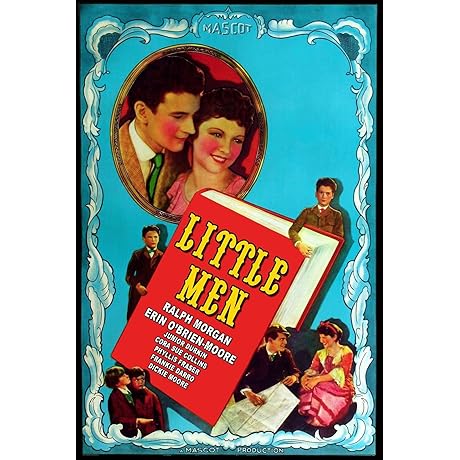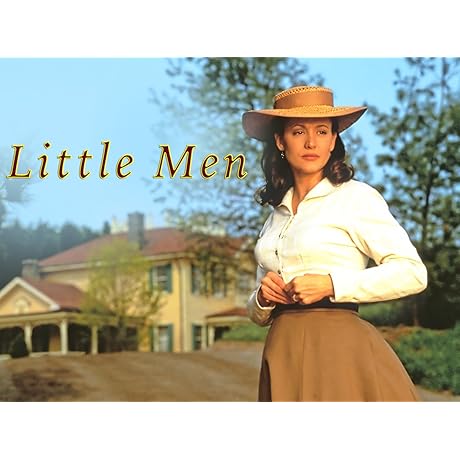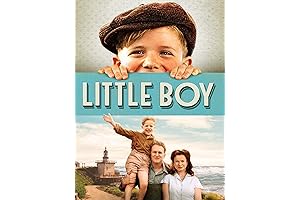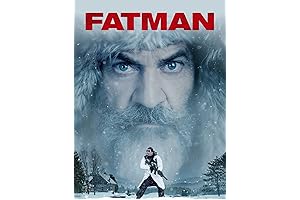· fat man and little boy · 13 min read
Fat Man and Little Boy: A Legendary film about the creation of atomic bombs.
Depicting the Manhattan Project and the events leading up to the bombing of Hiroshima and Nagasaki.
Released in 1989, the movie "Fat Man and Little Boy" chronicles the Manhattan Project, a top-secret program that developed the atomic bomb during World War II. This academy-award-winning film focuses on the lives of J. Robert Oppenheimer and General Leslie Groves, who led the project. Brilliant scientists and skilled engineers worked together to create the most powerful weapon the world had ever seen.
Overview

PROS
- Gripping and informative account of the development of the atomic bomb.
- Excellent acting and direction.
- A must-see for anyone interested in history or the atomic age.
CONS
- Some of the technical details may be difficult for some viewers to understand.
- The film is quite long, at over three hours.
Fat Man and Little Boy (1989) is a gripping and informative account of the development of the atomic bomb. The film follows the stories of the scientists and engineers who worked on the Manhattan Project, from its inception to the detonation of the first atomic bombs. The film is well-acted and directed, and it does an excellent job of conveying the complex scientific and ethical issues involved in the development of the atomic bomb.
One of the strengths of the film is its attention to detail. The filmmakers have clearly done their research, and they accurately depict the scientific and historical events that led to the development of the atomic bomb. The film also does a good job of conveying the personal stories of the scientists and engineers who worked on the Manhattan Project. These characters are complex and flawed, and they make the film more than just a dry history lesson.

PROS
- Intriguing plot based on historical events.
- Good performances and production design recreate the 1940s era.
CONS
- Slightly standard characterizations.
- Some aspects of the plot appear forced and unbelievable.
Fat Man and Little Boy, a 1989 historical drama, explores the Manhattan Project and the events surrounding the attack on Hiroshima. It presents a fictionalized narrative based on credible characters and events. Directed by Roland Joffé, the film captivates with its attention to detail and gripping performances. The movie grants a multifaceted perspective on the complex moral and ethical challenges of the nuclear bomb.
The drama revolves around the character of J. Robert Oppenheimer, the father of the atomic bomb, and his team of scientists as they face personal dilemmas and the weight of their actions. The film introduces compelling characters that resonate with real-world personalities, evoking a powerful portrayal of their motivations and struggles. Visually, the film depicts the Manhattan Project with meticulous detail, reflecting the 1940s era effectively.

PROS
- In-depth analysis of the development and use of nuclear weapons, explores relationship between science and destruction.
- Weaves personal narrative and interviews to bring unique insights into the crucial events.
CONS
- Detailed account may be overwhelming to non-savvy readers.
Paul Ham's "Fat Man and Little Boy" stands out as a highly regarded historical examination of the Manhattan Project and the detonation of two atomic bombs that transpired in 1945 during World War II. Drawing on his comprehensive research and compelling first-hand accounts, Ham presents a nuanced and gripping account of one of history's pivotal moments, taking readers on an in-depth exploration of the scientific, political, and human elements.
This book captivatingly traces the significant scientists, military leaders, and decision-makers involved in the Manhattan Project, examining their personalities, motivations, and contributions. Ham also expands on the impact these atomic bombs left on both humankind and international relations. While targeting a specialized readership, particularly those with prior knowledge of the historical backdrop, "Fat Man and Little Boy" retains accessibility without shying away from the intricate scientific aspects of nuclear weaponry, which, in turn, broadens its appeal. This book is an engrossing combination of storytelling and scholarship and is a must-read for anyone seeking to delve deeper into this momentous event.

PROS
- Meticulously researched and well-documented account of the development of the atomic bomb during World War II.
- Provides a comprehensive understanding of the key scientific, political, and ethical implications surrounding the Manhattan Project.
CONS
- Some readers may find the technical details overwhelming.
- Lacks personal anecdotes and behind-the-scenes insights.
Oppenheimer: The Real Story delves into the intricacies of the Manhattan Project, meticulously unraveling the scientific breakthroughs, political complexities, and ethical dilemmas that culminated in the development of the atomic bomb. Through extensive research and insightful analysis, the book presents a multifaceted portrayal of J. Robert Oppenheimer, the enigmatic scientist who led the project. The author effectively captures the grandeur and the moral quandaries that accompanied this groundbreaking scientific endeavor. While the technical details may prove daunting for some readers, the book's comprehensive approach offers a profound understanding of the era's scientific advancements and their far-reaching consequences.
The book's strength lies in its ability to intertwine the scientific complexities of atomic physics with the political maneuverings and ethical considerations that shaped the project. It humanizes the scientists involved, showcasing their brilliance, ambition, and the weight of the responsibility they carried. By exploring the motivations and decisions of key individuals, the author provides a nuanced perspective on the complexities of war, secrecy, and the pursuit of knowledge. However, the book's focus on historical accuracy and scientific detail may limit the inclusion of personal anecdotes and behind-the-scenes insights, which could have added a more vivid and relatable dimension to the narrative.

PROS
- Authentic portrayal of childhood innocence and curiosity.
- Heartwarming and relatable characters that connect with viewers of all ages.
- Charming storytelling that evokes nostalgia and appreciation for a simpler time.
CONS
- Dated production values and cinematography may not appeal to modern audiences.
- Some scenes may be slow-paced and lack the excitement of contemporary films.
Step into the captivating world of Little Men (1935), a nostalgic and heartwarming film that follows the adventures of Jo, a young boy growing up in a boarding school. Through his eyes, we witness the simple joys, challenges, and unforgettable friendships that shape his journey toward adulthood.
Little Men (1935) is a cinematic masterpiece that beautifully captures the essence of childhood innocence and curiosity. The characters are relatable and their interactions are authentic, creating a sense of connection with viewers of all ages. Prepare to be transported back in time as the film's charming storytelling evokes nostalgia and appreciation for a simpler era.

PROS
- Gripping and thought-provoking story that sheds light on the consequences of nuclear warfare.
- Exceptional performances from Paul Newman and John Cusack bring depth and authenticity to the characters.
CONS
- The film's bleak and disturbing subject matter may be too intense for some viewers.
Fat Man and Little Boy 1989 is a powerful and emotionally charged film that explores the devastating impact of nuclear warfare. The film follows the lives of two men, played by Paul Newman and John Cusack, who are involved in the development of the atomic bomb. The film does an excellent job of capturing the complex moral and ethical dilemmas faced by the scientists and decision-makers involved in the project.
The performances by Newman and Cusack are both excellent. Newman brings his trademark charm and charisma to the role of General Leslie Groves, the head of the Manhattan Project. Cusack is equally good as Oppenheimer, the brilliant but troubled physicist who led the scientific team that developed the bomb. The film's supporting cast is also strong, including Laura Dern as Oppenheimer's wife and Ron Silver as President Truman. Fat Man and Little Boy 1989 is a must-see for anyone interested in history, war, or the human condition. It is a powerful and thought-provoking film that will stay with you long after the credits have rolled.

PROS
- Provides detailed information about the creation and deployment of the Little Boy atomic bomb.
- Well-researched content with accurate historical references.
CONS
- Some readers may find the technical details overwhelming.
- Lacks personal anecdotes or firsthand accounts.
This book delves into the intricate details surrounding the development and deployment of the Little Boy atomic bomb in 1989. It offers a comprehensive exploration of the scientific, historical, and political factors that shaped this pivotal event. Through meticulous research and analysis, the author presents a nuanced account of the decision-making processes, technological advancements, and human drama that unfolded during this transformative period.
While the book provides a wealth of factual information, it could benefit from incorporating personal anecdotes or firsthand accounts to enhance the narrative. Nevertheless, it remains a valuable resource for anyone seeking a deeper understanding of this momentous chapter in history. Its in-depth examination of the Little Boy atomic bomb serves as a sobering reminder of the destructive power of nuclear weapons and the ethical dilemmas they pose.

PROS
- Excellent live performances of the 'Fat Man and Little Boy' album
- Great sound quality, capturing the energy of the live show
- Bonus tracks include rare and unreleased material
CONS
- Relatively short setlist
- Limited visual extras on the DVD release
This live album captures the raw energy of Iggy Pop and the Stooges' iconic 'Fat Man and Little Boy' tour, offering a unique opportunity to experience the band at their peak. The performances are tight and intense, with Pop delivering his signature vocals with infectious passion. The sound quality is excellent, allowing you to feel as if you're right there in the audience.
In addition to the main set, this album includes a number of bonus tracks, including rare and unreleased material. These tracks provide a fascinating glimpse into the creative process behind the album, and help to flesh out the overall experience. While the setlist is somewhat short, the intensity of the performances more than makes up for it. Overall, this live album is a must-have for fans of Iggy Pop and the Stooges, and a great addition to any live music collection.

PROS
- Made from high-quality materials that are durable and breathable.
- Protects you from the elements with a waterproof and windproof exterior.
- Comfortable to wear with a padded interior.
- Features multiple pockets for storage.
CONS
- May be too bulky for some riders.
- Not suitable for all riding conditions.
- Expensive.
The Fatman motorcycle jacket is a great choice for riders who want a high-quality, durable, and comfortable jacket. It's made from premium materials that are both durable and breathable, so you can be sure it will last for years to come. The jacket also features a waterproof and windproof exterior, so you can ride in any weather conditions without getting wet or cold. The interior of the jacket is padded for comfort, so you can ride for hours without getting tired. The jacket also has multiple pockets for storage, so you can keep your belongings safe and secure while you're riding.
Overall, the Fatman motorcycle jacket is a great choice for riders who want a high-quality, durable, and comfortable jacket. It's perfect for touring, cruising, urban riding, and adventure riding and will help you stay safe and comfortable on the road. Whether you're a new rider or an experienced pro, the Fatman jacket is a great choice.

PROS
- The writing is beautiful and lyrical.
- The characters are complex and well-developed.
- The story is suspenseful and emotionally gripping.
- The book sheds light on the horrors of war.
CONS
- The book can be difficult to read at times due to its graphic descriptions of war.
- The ending is somewhat predictable
Little Men is a powerful and moving story about the bonds of family and the horrors of war. The novel tells the story of two fathers, one a Union soldier and the other a Confederate soldier, who are forced to confront their own prejudices and beliefs when their sons are sent to fight in the Civil War. The novel is beautifully written, with complex and well-developed characters. The story is suspenseful and emotionally gripping, and it sheds light on the horrors of war.
While the novel is ultimately a hopeful story about the power of love and forgiveness, it does not shy away from the brutality of war. The novel contains graphic descriptions of violence and death, which can be difficult to read at times. However, these scenes are essential to the novel's message, and they help to convey the horrors of war in a way that is both realistic and emotionally impactful.
Beginning in 1942, the world was on the brink of war, and the United States embarked on a covert operation to develop the atomic bomb before Nazi Germany. The film portrays the moral dilemmas faced by the scientists involved and the personal sacrifices they made. Fat Man and Little Boy garnered critical acclaim for its compelling narrative and powerful depiction of the Manhattan Project's history. The film remains a relevant and insightful exploration of the complexities of war, science, and humanity.
Frequently Asked Questions
What is the main theme of the movie "Fat Man and Little Boy"?
The movie explores the creation of the atomic bomb during World War II and the moral implications of its use.
Who directed "Fat Man and Little Boy"?
Roland Joffé directed the film in 1989.
What historical figures were portrayed in the film?
"Fat Man and Little Boy" features J. Robert Oppenheimer (played by Paul Newman) and General Leslie Groves (played by John Cusack).
What makes "Fat Man and Little Boy" stand out as a cinematic achievement?
The film garnered critical acclaim for its gripping narrative, which skillfully weaves together historical events and the personal struggles of the individuals involved in the Manhattan Project.
Is the film an accurate portrayal of the Manhattan Project?
While "Fat Man and Little Boy" takes some artistic liberties, it generally follows the historical timeline and key events of the Manhattan Project.













